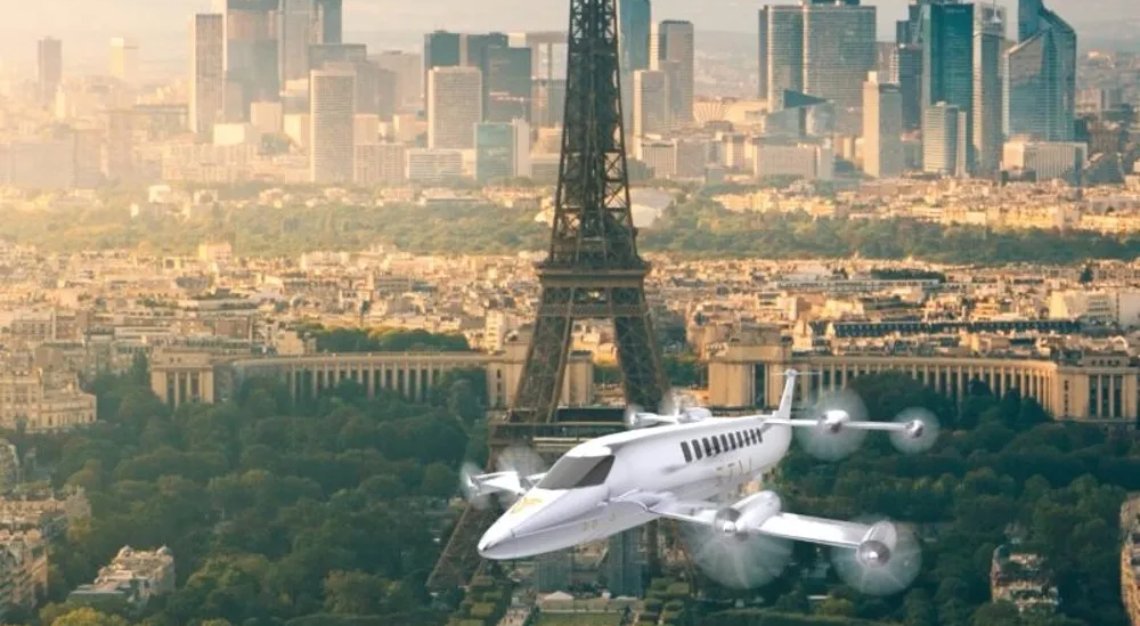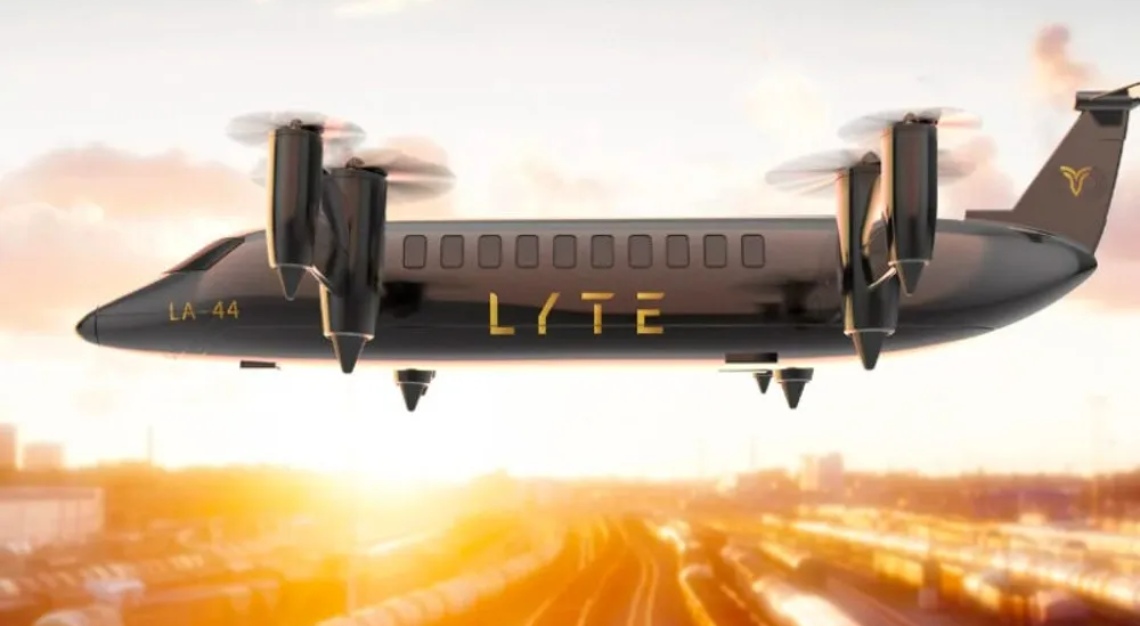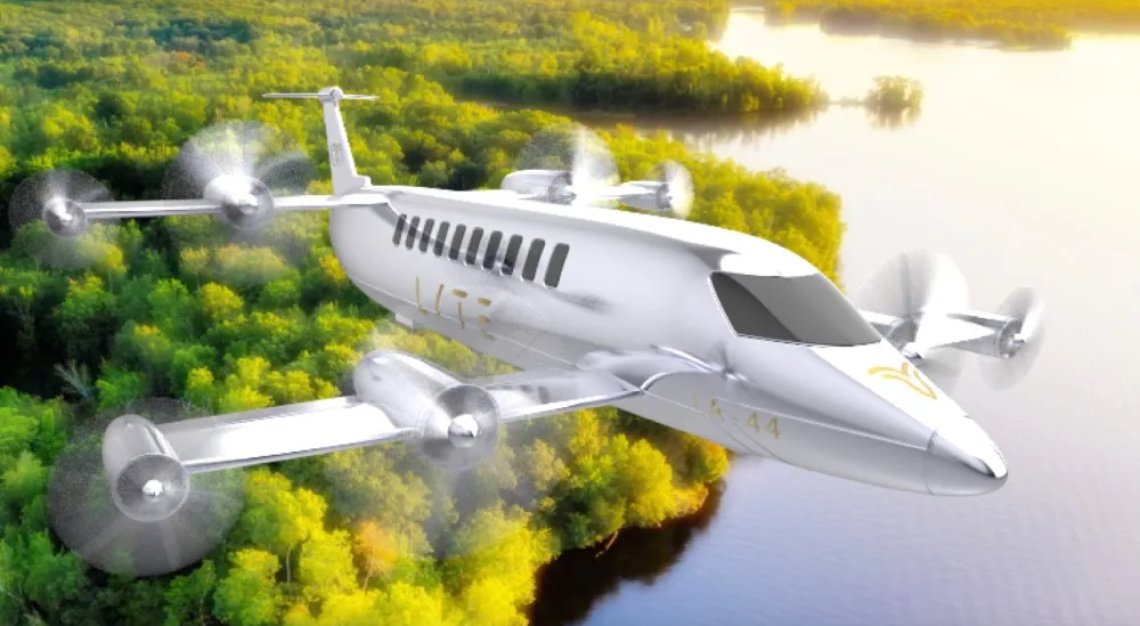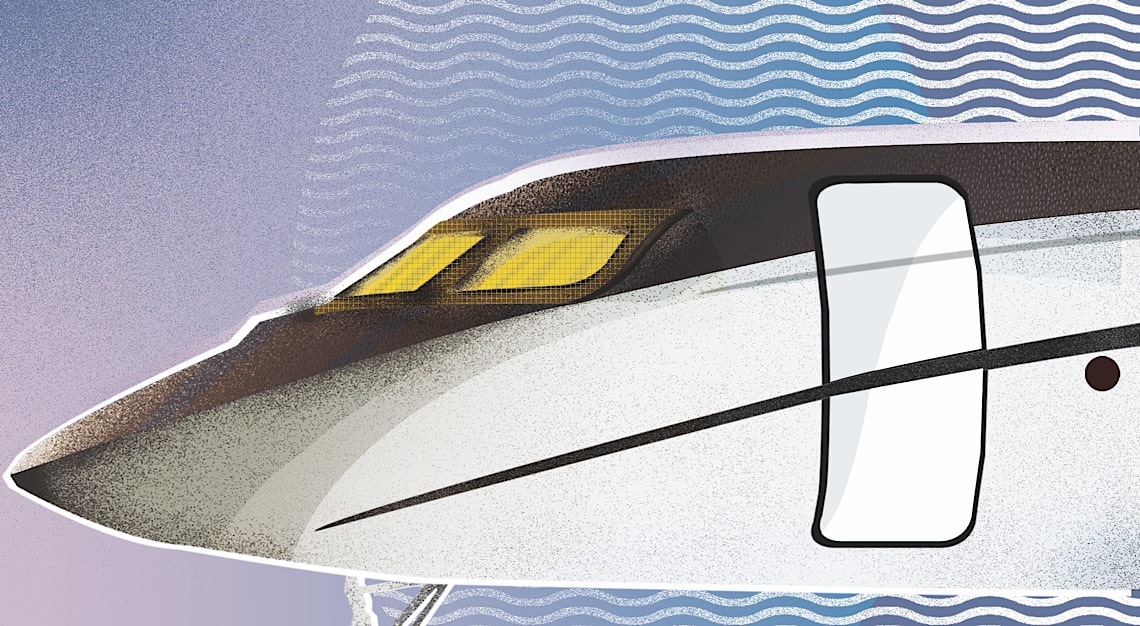Forget air taxis. Lyte’s L-44 SkyBus is designed to be faster and more sustainable than trains, buses, and other forms of regional aircraft
Who says eVTOLs are only good as flying taxis?
Lyte Aviation has much more ambitious plans for the next generation of electric aircraft. The UK firm’s LA-44 SkyBus looks like other vertical takeoff and landing aircraft, with multiple tilting propellers and wings, but on steroids.
The SkyBus will be able to carry 40 passengers, with a nearly five-ton payload capacity. With the first prototype expected in 2025, the SkyBus has a projected range of 1,006 kilometres, with a maximum speed of 298 km/hr. Lyte CEO Freshta Farzam says it will be five times more efficient than existing helicopter designs, with ten times less carbon output.

Unlike much smaller battery-only eVTOL competitors, the SkyBus will have hybrid propulsion: The first will be electric, and powered by hydrogen fuel cells, while the second is comprised of four turbine engines running on jet fuel.
“Conventional, reliable engines will likely remain unavoidable for the foreseeable future,” said Farzam. “They’re the best option for our aircraft program for the time being, with the aim to operate and refuel practically anywhere with the current infrastructure.”
This supersized eVTOL, though larger than a conventional air taxi, has a similar goal of disrupting conventional transportation hubs—in this case, buses, trains and even regional aircraft. Lyte said it had partnered with the Netherlands’ Twente Airport to develop regional routes to cut commute times between cities like Paris, Munich and London.

As the eVTOL world moves closer to reality, Lyte recently announced a partnership with Volatus Infrastructure and Energy Solution to explore the SkyBus’ requirements for charging, refuelling and vertiport systems. The aircraft, with its 17-metre wingspan, would be able to land on a site that is about 39.6 x 39.6 metres.
“Advanced Air Mobility will come in many different shapes, sizes and means of propulsions,” said Dan Sloat, CEO of Volatus. “That includes bold, game-changing designs like the LA-44 SkyBus. As infrastructure and energy providers, we believe in the importance of accommodating as many designs as possible so that eVTOL operators have more safety divert options available for landing.”
Buying a ticket on the SkyBus may take some time. The company expects certification in five to six years. “We are sure that the supply of sustainable aviation fuel and green hydrogen will grow accordingly,” Farzam told Helicopter Investor. “Maybe within 10 years, while we can go fully hydrogen-electric, the supply will have increased tremendously.”






